Breast Augmentation in Chiang Mai
Search and Compare the Best Clinics and Doctors at the Lowest Prices for Breast Augmentation in Chiang Mai
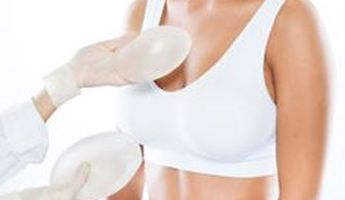
Find the best clinics for Breast Augmentation in Chiang Mai
With Medijump you can browse 1 facilities offering Breast Augmentation procedures in Chiang Mai. The cheapest price available is $1,098 in Nonthaburi
Breast Augmentation in Thailand
Price: $ 1,098
Breast Augmentation in Nonthaburi
Price: $ 1,098
Breast Augmentation in Chiang Mai
Price: $ 1,109
Hungary offers the best prices Worldwide
Price: $ 208
Eden Clinic, located in Mueang Chiang Mai, Chiang Mai, Thailand offers patients Breast Augmentation procedures among its total of 13 available procedures, across 3 different specialties. The cost of a Breast Augmentation procedure ranges from ฿39,900 to ฿111,111, whilst the national average price is approximately ฿100,333. All procedures and treatments are undertaken by just a small team of specialists, with 2 in total at the Clinic, and they are not accredited by any recognized accreditations institutes
Compare Before & After Photos of _procedure_photos.phpBreast Augmentation


Full-side view
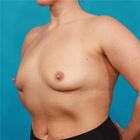

Half-side view


Front view
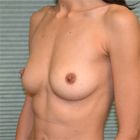

Half-side view
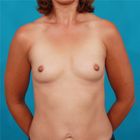
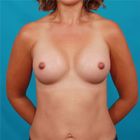
Front view
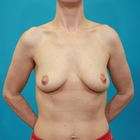

Front view
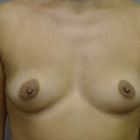
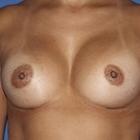
Front view
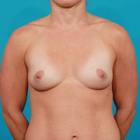

Front view
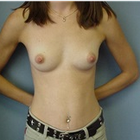
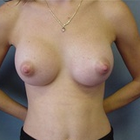
Front view
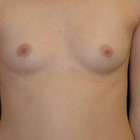
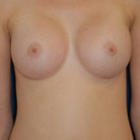
Front view
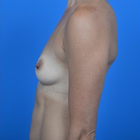
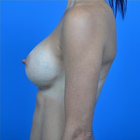
Full-side view
WHY US?
At Medijump, we're making medical easy. You can search, compare, discuss, and book your medical all in one place. We open the door to the best medical providers worldwide, saving you time and energy along the way, and it's all for FREE, no hidden fees, and no price markups guaranteed. So what are you waiting for?

Free

Best Price

Widest Selection

Risk-Free
What you need to know about Breast Augmentation in Chiang Mai

Breast augmentation, also known as a Boob Job or Breast Enlargement, is a surgical procedure aimed at increasing breast size, enhancing shape, or improving symmetry. In Chiang Mai, this procedure is carried out by board-certified plastic surgeons in accredited medical facilities, ensuring both safety and quality.
What is the cost of Breast Augmentation in Chiang Mai?
Prices in Chiang Mai are competitive, often offering savings without compromising on quality, especially when compared to costs in the US or Europe. However, factors such as surgeon’s fees, facility costs, and the type of implants affect the total cost.
What does a Breast Augmentation Procedure Involve?
The surgery involves placing breast implants under the breast tissue or chest muscles. Choices between saline or silicone implants can be made based on the desired feel and appearance. This is something your surgeon will discuss with you prior to even travelling.
How Long Should I Stay in Chiang Mai for a Breast Augmentation Procedure?
The length of stay in Chiang Mai for a Breast Augmentation is subject to various factors, such as your overall health, the specific nature of the procedure, and your individual recovery rate. Generally, Breast Augmentation surgery is an outpatient process, meaning you may be able to return home on the same day. However, a stay of up to two days might be necessary if your procedure is more intricate.
Although the hospital stay is relatively brief, it is advisable to remain in Chiang Mai for at least one-week post-procedure. This timeframe allows for initial recovery and a follow-up appointment with the surgeon. Moreover, in the event of any complications, prompt medical assistance will be accessible. Thorough knowledge of the recovery process and its duration is crucial for proper preparation and managing stress during treatment.
What's the Recovery Time for Breast Augmentation Procedures in Chiang Mai?
Post-surgery, a recovery period of one to two weeks is generally required, with follow-up visits to the surgeon. It's crucial to follow all post-op instructions for optimal healing.
Experiencing swelling and discomfort following the operation is normal, both of which should gradually alleviate with time. You will be required to wear a compression garment, take prescribed medications, and maintain a healthy lifestyle for an effective recovery.
What sort of Aftercare is Required for Breast Augmentation Procedures in Chiang Mai?
Post-operative care is critical for the success of a Breast Augmentation. The initial recovery phase usually includes prescribed medications to alleviate pain and avert infection. Individuals can normally resume everyday activities within a few weeks, depending on their healing pace and bodily responses. However, it is advisable to refrain from vigorous activities for a minimum of six weeks post-procedure.
What's the Success Rate of Breast Augmentation Procedures in Chiang Mai?
In Chiang Mai, Breast Augmentation boasts a relatively high success rate, which contributes to its immense popularity among individuals seeking improvements in their physical appearance. Numerous patients have reported satisfaction and enhanced confidence after undergoing the procedure, making it a widely favoured cosmetic surgery.
Are there Alternatives to Breast Augmentation Procedures in Chiang Mai?
In Chiang Mai, there are several alternatives to the Breast Augmentation. If you're considering breast augmentation strictly for cosmetic reasons and prefer non-surgical options, various suitable methods are available. Alternatives include fat grafting, hormonal therapy, and natural remedies. Fat grafting, also known as fat transfer, involves removing fat from different body parts and injecting it into your breasts. This approach is regarded as safer because it employs the body's tissue, minimizing complications.
What Should You Expect Before and After the Procedure?
Prior to the procedure, your surgeon will discuss your expectations and the anticipated outcomes of your Breast Augmentation. The preoperative consultation comprises an in-depth conversation about your medical history, a physical examination, and an outline of the procedure and postoperative care. Open and candid communication with your healthcare provider is crucial at this stage to ensure the treatment matches your objectives.
Post-procedure, initial swelling and discomfort are normal and can be managed with prescribed medication. It's vital to adhere to your surgeon's post-operative guidelines, which include caring for surgical incisions, taking prescribed medications, and attending follow-up appointments. As swelling subsides and incision lines fade gradually, your enhanced breast profile will become apparent.
Keep in mind that the decision to pursue a Breast Augmentation is deeply personal and should not be made hastily. Allocate time to consider the advantages and drawbacks, and ensure you are well-informed.
What are the Risks and Complications of Breast Augmentation Procedures in Chiang Mai?
As is the case with any surgical intervention, Breast Augmentation comes with its own set of risks and potential complications that need to be considered. These may include infections, bleeding, alterations in nipple or breast sensations, implant leakage or rupture, development of scar tissue, and unsatisfactory outcomes that could necessitate further surgeries.
Some individuals may also encounter complications tied to anesthesia, such as respiratory problems and reactions to medication. The psychological ramifications should not be overlooked, considering surgical procedures can impact mental well-being. An extensive conversation with your healthcare provider about these potential risks remains a key component in making an informed choice.
How to Prepare for Breast Augmentation in Chiang Mai?
Thorough preparation plays a significant role in the success of your Breast Augmentation. Before the surgery, you must have detailed conversations with your surgeon about your medical background, allergies, current medications, and lifestyle habits such as smoking or alcohol consumption. You may need to cease certain medications and habits, including smoking, weeks before the procedure, as they can influence the healing process.
Practical preparations like organizing for someone to be with you on the day of the surgery, scheduling sufficient time off work for recovery, and establishing a comfortable space at home for recuperation can contribute to a smoother post-operative phase. Your surgeon's team will also advise you on pre-operative fasting and hygiene guidelines.
What are some Common Misconceptions about Breast Augmentation?
Despite its widespread popularity, numerous misconceptions surround the Breast Augmentation. One such misconception asserts that breast implants are permanent. In actuality, breast implants may require replacement after 10-15 years, with the specific timeframe depending on individual health and lifestyle factors. Another false assumption is that breast augmentation solely serves vanity purposes. In reality, many patients undergo this procedure following mastectomy or as part of gender-affirming surgery.
A further common myth suggests that breast augmentation hinders breastfeeding. While a few instances might affect breastfeeding, the majority of individuals with breast implants can successfully breastfeed.
Whilst the information presented here has been accurately sourced and verified by a medical professional for its accuracy, it is still advised to consult with your doctor before pursuing a medical treatment at one of the listed medical providers
No Time?
Tell us what you're looking for and we'll reachout to the top clinics all at once
Enquire Now

Popular Procedures in Chiang Mai
Prices Start From $834

Prices Start From $500

Prices Start From $93

Prices Start From $85

Prices Start From $477

Prices Start From $931

Recommended Medical Centers in Chiang Mai for Breast Augmentation

- Interpreter services
- Translation service
- Religious facilities
- Medical records transfer
- Medical travel insurance
- Health insurance coordination
- TV in the room
- Safe in the room
- Phone in the room
- Private rooms for patients available

- Interpreter services
- Translation service
- Religious facilities
- Medical records transfer
- Medical travel insurance
- Health insurance coordination
- TV in the room
- Safe in the room
- Phone in the room
- Private rooms for patients available

- Interpreter services
- Translation service
- Religious facilities
- Medical records transfer
- Medical travel insurance
- Health insurance coordination
- TV in the room
- Safe in the room
- Phone in the room
- Private rooms for patients available

- Interpreter services
- Translation service
- Religious facilities
- Medical records transfer
- Medical travel insurance
- Health insurance coordination
- TV in the room
- Safe in the room
- Phone in the room
- Private rooms for patients available

- Interpreter services
- Translation service
- Religious facilities
- Medical records transfer
- Medical travel insurance
- Health insurance coordination
- TV in the room
- Safe in the room
- Phone in the room
- Private rooms for patients available

- Interpreter services
- Translation service
- Religious facilities
- Medical records transfer
- Medical travel insurance
- Health insurance coordination
- TV in the room
- Safe in the room
- Phone in the room
- Private rooms for patients available

- Interpreter services
- Translation service
- Religious facilities
- Medical records transfer
- Medical travel insurance
- Health insurance coordination
- TV in the room
- Safe in the room
- Phone in the room
- Private rooms for patients available

- Interpreter services
- Translation service
- Religious facilities
- Medical records transfer
- Medical travel insurance
- Health insurance coordination
- TV in the room
- Safe in the room
- Phone in the room
- Private rooms for patients available

- Interpreter services
- Translation service
- Religious facilities
- Medical records transfer
- Medical travel insurance
- Health insurance coordination
- TV in the room
- Safe in the room
- Phone in the room
- Private rooms for patients available

- Interpreter services
- Translation service
- Religious facilities
- Medical records transfer
- Medical travel insurance
- Health insurance coordination
- TV in the room
- Safe in the room
- Phone in the room
- Private rooms for patients available
Breast Augmentation in and around Chiang Mai
About Chiang Mai
Chiang Mai is the fourth largest city in Thailand and is situated in the Northern part of the country. Chiang Mai is a land of misty mountains, hillside tribal villages and lush green landscape. Chiang Mai is not only an amazing holiday location but is also one of the most reliable and affordable destinations for medical tourism. Surprisingly, medical costs are cheaper here than in Bangkok and the facilities are up to date and for 3000 baht (approximately $100), you can have a complete health check-up.
Each year, thousands of medical tourists from all over the globe flock to Chiang Mai. The city's superior hospitals that are top-rated globally, boast dedicated International departments specifically put in place to meet the varying needs of these medical visitors. Impeccable hospitality services are a hallmark of these facilities, coupled with hospital personnel and medical professionals who are proficient in English.
These hospitals are equipped to provide wide-ranging treatments such as cardiac surgery, amongst others, and cosmetic procedures including but not limited to breast augmentations, liposuction, and cool sculpting. There are also quite attractive medical packages available that conveniently bundle treatment and accommodation.
The Chiang Mai Ram International, bearing a notable reputation for their remarkable services, stands out as the most frequented hospital in the city. Moreover, Chiang Mai is rich with numerous restorative amenities including spas, resorts as well as massage and healing centers. These outlets have cemented the city’s status as a perfect haven for post-treatment rejuvenation.
Popular areas in Chiang Mai
The metropolitan area of Chiang Mai is home to over 1 million residents. Listed below are the popular areas of this amazing city. Each area has its own charm and offers something to the visitors.
- Old City: Is the cultural and religious epicenter of Chiang Mai. The old town has moats and fortress walls from ancient times. Pae gate, which lies in the Old Town, is the most famous traditional landmark of the city.
- Nimmanhemin road: You can experience a bustling and vibrant nightlife here. Located close to the famous Chiang Mai University, this place is quite popular with the young and dynamic student population and you can find several affordable hostels and guesthouses on the Nimmanhemin road, varied housing options are available for long-term expats.
- Chiang Mai Night Bazaar: Considered as the ‘downtown’ of Chiang Mai, it is a paradise for shopping sprees. You will find a lot of street food shops which offer authentic Thai delicacies at affordable prices. Handicrafts, antiques, textiles and other traditional Thai products also come with affordable price tags. After 6 pm, this area comes alive and you can expect to see the streets very busy with enthusiastic tourists and locals.
- Riverside: The Riverside Chiang Mai has all of the old world charms that the city is renowned for with affordable eateries and live-music venues combined with the fresh river breeze and the relaxed atmosphere all helps to make it the best place to chill out during evening time.
- Santitham: The Santitham area of the city is mainly populated by Thai locals and this spot is less touristy and a bit more laid back. You can find supermarkets, public parks, and many residential buildings within this neighborhood.
Weather and climate in Chiang Mai
Located at an elevation of 316 meters, Chiang Mai enjoys a cooler and pleasant climate. As it experiences a typical tropical climate, winter, and spring seasons are not applicable. Instead, Hot, Cool and Rainy seasons are distinct in Chiang Mai.
- Cool: Early December to February. Day time temperature rises up to 30°C, yet, you may require sweatshirts to keep yourself warm as dusk approaches. It is the best weather to pay a visit to Chiang Mai. January is the coolest month of the season with temperatures dropping to as low as 10°C.
- Hot: Mid-February to mid-June. March is the hottest month in Chiang Mai with the temperatures rising to 40°C. You can escape the blistering heat waves and embrace the chilly breeze by visiting the nearby mountains.
- Rainy: Early June to late October. The average temperature drops down to 32°C during the rainy season. It rains almost every single day without fail. Even though the rainfall is heavy and the storms are intense, they won’t last for long. August is the wettest month of the year.
Getting around in Chiang Mai
Chiang Mai International Airport proclaims its status as the fourth busiest air hub in the country. It skillfully and efficiently manages a substantial volume of domestic and international flights. These flights provide vital connections between Chiang Mai and an array of prominent cities across the globe such as Bangkok, Beijing, Doha, and Ho Chi Minh, to mention a few.
While Chiang Mai, the bustling metropolis, boasts a sizeable expanse and a cosmopolitan vibe, its public transportation system falls somewhat short of organized. However, this minor shortcoming does not pose a barrier to exploration of this magnificent city. A plethora of other transportation mediums step in to bridge this gap, facilitating comfortable and convenient travel around the city. These constitute both traditional and modern modes of transport that cater to different tastes and preferences, all aimed at ensuring visitors and locals alike can fully experience and appreciate the city's remarkable offerings.
- Songthaew: The Songthaew or red truck is the most common and the desirable mode of transportation. For 30 Bahts, you can travel anywhere within the city, as long as you have no issues sharing your ride with other passengers. You can book private songthaew using the mobile app, GRAB.
- Tuk-tuks: Are the second most common mode of transportation next to songthaew. However, they are pricey as the rates start at 60 Bahts. It could be inexpensive too if you have exceptional bargaining skills.
- Taxis: Are quite expensive, costing somewhere between 100 and 200 Bahts per ride in the city.
Tourist visas in Chiang Mai
Thailand is a popular tourist destination for people from all over the world. Citizens of many countries, including the US, UK, Australia, Germany, and Singapore, do not need a visa to enter Thailand and can stay for up to 30 days without a visa.
Citizens of India and China who intend to stay in Thailand for up to 15 days can apply for a visa on arrival. However, if they want to stay for longer than 15 days, they will need to apply for a different type of visa, such as a transit visa or a non-immigrant visa.
Here is a summary of the visa requirements for Indian and Chinese passport holders:
- Visa on arrival: Indian and Chinese passport holders can apply for a visa on arrival if they intend to stay in Thailand for up to 15 days. The visa fee is 2,000 Thai baht.
- Transit visa: Indian and Chinese passport holders who are only passing through Thailand on their way to another country will need to apply for a transit visa. The transit visa allows them to stay in Thailand for up to 48 hours.
- Non-immigrant visa: Indian and Chinese passport holders who want to stay in Thailand for longer than 15 days will need to apply for a non-immigrant visa. There are different types of non-immigrant visas available, depending on the purpose of the visit.
To apply for a visa on arrival or a non-immigrant visa, Indian and Chinese passport holders will need to have a valid passport, a return flight ticket, and proof of funds. They may also need to provide additional documents, such as a hotel reservation or a letter of invitation from a Thai resident.
Additional Information
- Thai Baht is the currency of Thailand. 1 USD is around 34.5559 THB as of 2023.
- ATMs and exchange bureau are present at most of the tourist locations, making the withdrawal of local currency easy. You can pay by credit card in big restaurants, shopping malls, and hospitals.
- Thai is the official language of Thailand and is widely spoken in Chiang Mai. However, most of the locals in Chiang Mai do understand and speak good English. The street signs are also translated into English making it is easier for the tourists to get around.
- 90% of the total population of Thailand practice Buddhism, followed by Islam. Thai nationals exhibit deep love and admiration for their royal family.
- Notable public holidays:
- January 1 – New Year's Eve
- February 19 – Makha Bucha day
- April 12-16 – Songkran Festival
- May 5 – Coronation day
- December 10 – Constitution day
Popular Searches
- Plastic Surgery in Thailand
- Dental Implants in Thailand
- Hair Transplant in Thailand
- Breast Augmentation Thailand
- Gastric Sleeve in Thailand
- Gender Reassignment Surgery in Thailand
- Laser Hair Removal in Bangkok
- Botox in Bangkok
- Dermatology in Bangkok
- Breast Augmentation in Bangkok
- Coolsculpting in Bangkok
- Veneers in Turkey
- Hair Transplant in Turkey
- Rhinoplasty in Turkey
- Stem Cell Therapy in Mexico
- Rhinoplasty in Mexico
- Liposuction in Mexico
- Coolsculpting in Tijuana
- Rhinoplasty in Korea
- Scar Removal in Korea
- Gastric Sleeve in Turkey
- Bone Marrow Transplant in India
- Invisalign in Malaysia
- Plastic Surgery in the Dominican Republic
- Tummy Tuck in the Dominican Republic
- Plastic and Cosmetic Surgery in Poland
- Rhinoplasty in Poland
- Hair Implant in Poland
- Dental Implants in Poland
- IVF in Turkey
